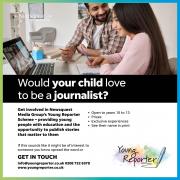
Social Media and Mental Health
In some ways the digital world is an exciting one for teenagers as we socialise, make and maintain friendships and communicate via social media. The ease with which we navigate this digital era has trained us to be tech savvy and comfortable with various media platforms. However, there is a darker side to this with reports of lack of experience of personal interactions making us awkward and uncommunicative. There is also the world of unrealistic comparisons, cyber bullying, feeling excluded and possible exploitations.
It's easier to make statements on a screen that would otherwise be difficult to verbalise in person, this leads to informalities that would not exist in face to face interactions. Harsh judgments and comparisons can be made when connecting in this way. Also the shorthand text speech and the fast mode of it can lead to misunderstandings and conflict.
The Royal Society for Public Health in the UK surveyed 1500 young people, age 14 to 24, to determine the effects of social media use on anxiety, depression, self-esteem and body image. Their findings show that YouTube had the most positive impact, while Instagram, Facebook, Twitter and SnapChat all had negative effects on mental health.
However, despite these findings teens use social media to connect, make friends and indeed ask for help. So rather than banning the use of such apps it would be better to engage with us and understand our use of social media. What we feel is beneficial about social media use and would we recognise when it is causing us harm.
It is also important to recognise the symptoms of mental health problems such as depression.
A feature of a depressive episode is a period of at least two weeks during which there is either depressed mood or loss of interest or pleasure in nearly all activities. Children are more likely to see irritability than depressed mood.
Professions can help parents spot these signs.
It’s too easy for teens to get stuck on the treadmill of social comparisons when engaging with social media. Guiding them towards their areas of interest using social media helps them expand their experiences and learn new things.
By Sassan Akhtar
Whitgift School


























